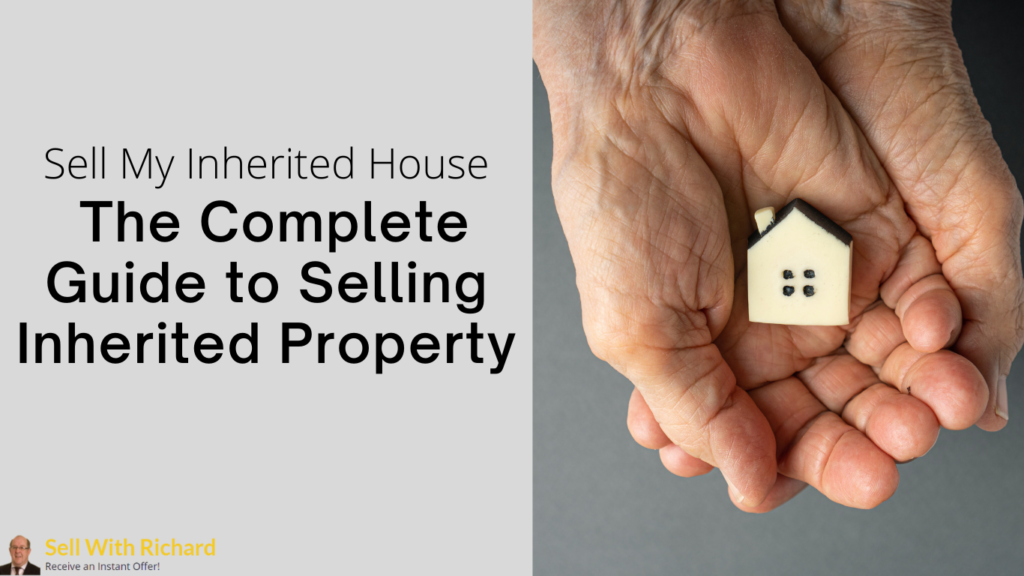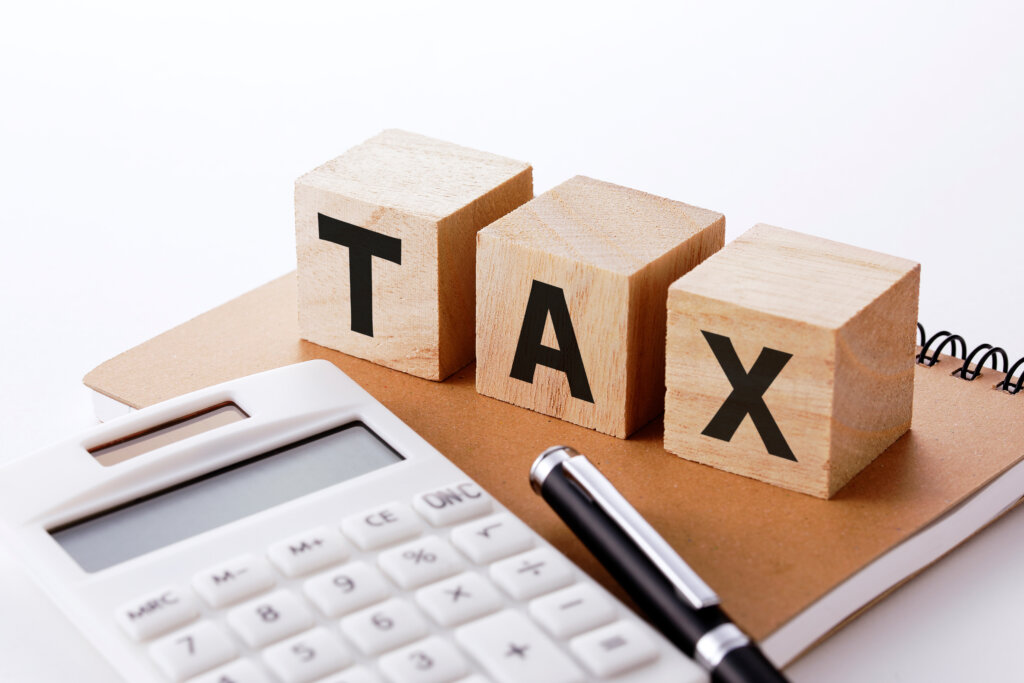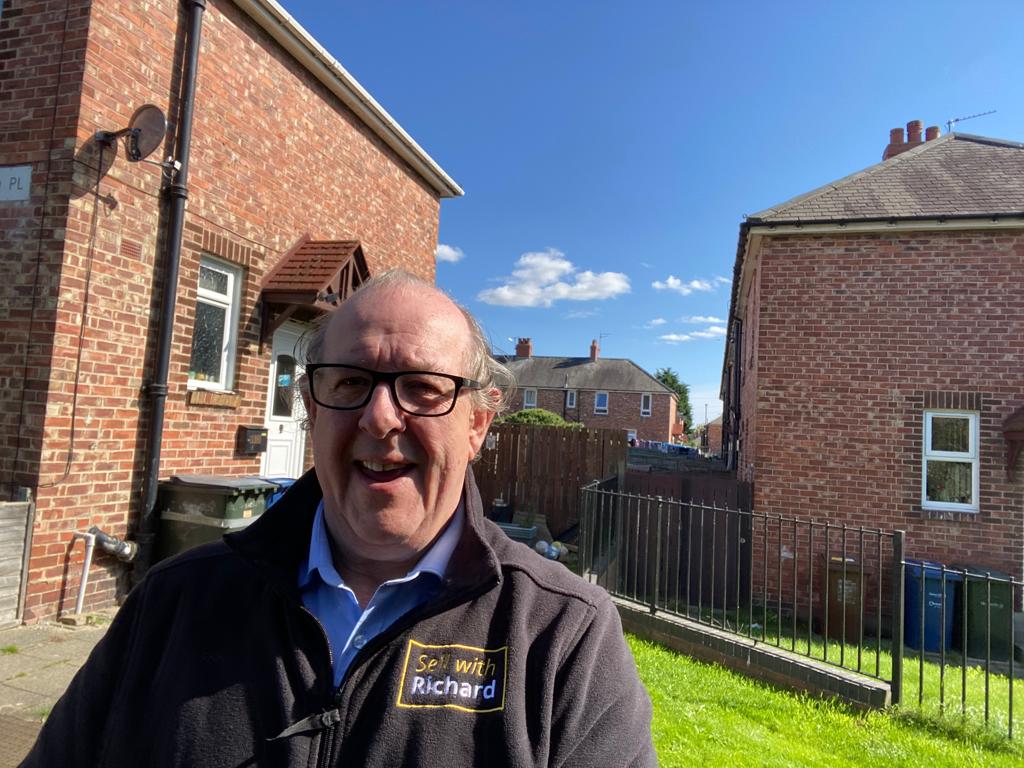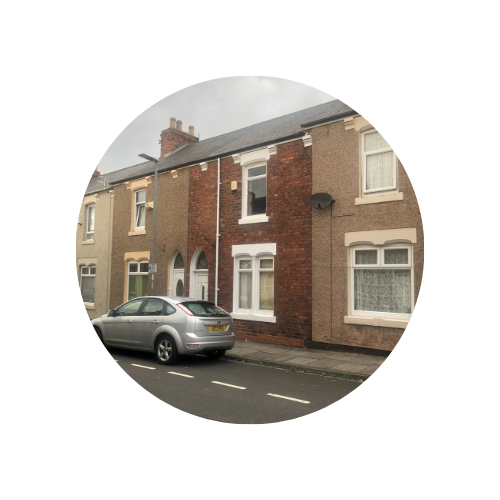
Interactive Guide Index
- Steps for Selling an Inherited Property
- What Expenses Do I Have When Selling an Inherited House?
- Insurance When You Inherit a House
- What is Probate?
- The Cost of the Probate Process
- The Length of the Probate Process
- Understanding Inheritance Tax
- Other Tax Situations to Consider
- Living in the Inherited Property
- Renting an Inherited Home
- Inheriting a House with a Mortgage
- Inheriting a Property with Siblings
- FAQ when Selling an Inherited House
Selling a house in probate can be a complicated and time-consuming process, which can quickly turn an inherited property into an unwanted burden.
Children or other family members may be involved as well, which can complicate the situation further.
However, if you know the requirements and the process involved, dealing with a house in probate doesn’t have to be that scary.
Our handy guide to selling an inherited or probate property will tell you everything you need to know – from inheritance tax to paying capital gains on your inherited property.
Read on to find out more, and if you have any questions or need any more information, don’t hesitate to get in touch today.
Steps for Selling an Inherited Property
Step 1
The first thing to do is to make sure the property is secure by locking all windows and doors. You should also contact the insurance company to tell them that the owner has died if this hasn’t already been done. This might cancel the policy, so you will have to be sure of this when you tell them that the owner passed.
Step 2
Your next step is to secure important documents, titles, and policies. Having all of the paperwork to hand when you’re dealing with the various parties who need to be informed will make things run much smoother.
Step 3
Also, it may be worth removing any valuables from the property to reduce the risk of theft.
Step 4
Next, get in touch with the local council to tell them that the owner has died and that the house is empty. You can also provide a forwarding address for future correspondence or bills that may be outstanding. And don’t forget to turn off all the utilities too.

Step 5
Find a professional probate specialist to evaluate the house. It’s best to get several different estate valuations so that you can have a good idea of what it’s worth.
To determine the estate’s worth, add all of the policies, shares, and bonds of the estate to its value, and then subtract any outstanding debt.
Step 6
You’ll also need to familiarise yourself with inheritance tax and make sure it’s paid in full.
Step 7
Apply for a Grant of Probate. You’ll need this in all cases where a person who has passed away leaves a property.
Step 8 (optional)
Once you’ve completed these steps, you can carry out any repairs or improvements to the house before putting it up for sale. Of course, this is entirely optional, and if you’re looking for a quick sale, then you might choose to skip this step to complete the house sale as quickly as possible. However, to ensure you get as close to the property’s full valuation as possible, it’s a good idea to carry out any work that needs doing.
Step 9
Get an estate agent to help you put it on the market, or you could decide to sell to a local cash buyer.
You may be asking yourself whether or not you can sell the house before probate is granted.
No, you cannot. You must wait for the Probate to be granted, so apply early. Probate can sometimes take three to six months; however, you can still conduct viewings of the property during this time.
Step 10
Hire a Conveyancer to manage the legal sale of the property. If you’ve never sold a property before and aren’t familiar with any Conveyancers, it’s a good idea to get a handful of quotes so you can choose the best one for you.
Step 11
The last step is to clean and clear the home of its contents.
What Expenses Do I Have When Selling an Inherited House?
Inheritance tax is the key expense you’ll incur when selling an inherited property.
The amount varies based on a number of factors. One such factor is whether the deceased person was married before their death occurred.
If the property and assets are over £325,000, an inheritance tax must be paid. You’ll want to get the Grant of Representation so you can have rights over the estate.
Another expense will be getting an evaluation of the property’s value. You will need to hire a surveyor to have this done.

Any outstanding bills against the property must also be taken care of such as utilities, other taxes, debts and insurance.
You’ll want to get a Conveyancer to help you when you sell the property, so things go smoothly. Remember, the fees for their services can vary, so it’s worth getting a handful of quotes before committing to a particular Conveyancer.
There may be a few other unforeseen expenses too, such as repairs or a house clearance company, but the above will make up the bulk of your expenses.
Insurance When You Inherit a House
What Is Probate?
Before an inherited house can be sold, the relationship with the property needs to be established. Applying for probate is the legal process that happens following someone’s death.
During the process, a list of all financial assets including money and the estate is compiled. This gives someone the legal authority to go ahead and deal with the estate. These people are also known as a personal representative.
It might not need probate if the person that died had jointly owned land, shared money, shared property, or if they only had savings or premium bonds because then these assets would go automatically to the surviving owners.
The Cost of the Probate Process
The cost of probate varies significantly depending on who does it. For example, a probate specialist may charge a fixed rate per hour. So, before hiring anyone, it’s worth looking around and doing some research to find someone who’s experienced when it comes to inherited property.
The Length of the Probate Process
Probate can typically take anywhere between six and 12 months, with the average length of time being around nine months. If there is a will established, then it could take even less time.
Understanding Inheritance Tax

When you sell a primary home, you don’t have to pay capital gain tax (CGT); however, this isn’t the case when you make a profit by selling an inherited home. If you own a home in addition to the home you have inherited, you need to establish one as your primary residence.
If you fail to establish which is the primary residence, then the HMRC will decide for you. This needs to be done within two years of inheriting the home. If the HMRC does it, it could prove to be quite costly for you in the end.
If the estate is worth more than £325,000, then you must pay inheritance tax on the estate. However, if the property is left to the children or grandchildren of the deceased person, then this threshold is increased to £475,000.
The standard inheritance tax threshold is currently 40% but can be reduced to 36% on some assets.
Other Tax Situations to Consider
There are actually three different types of taxes you will need to consider when inheriting a property:
Inheritance Tax
As mentioned before, the threshold for this tax is £325,000 and it will need to be paid within six months of the death of the owner, or you will be charged interest.
Income Tax
If you decide to rent out the inherited property, you will then have to pay an income tax on the property. This is not something you have to consider if you choose to live in the property yourself or sell it.
Capital Gains Tax
This is a tax applied when selling an inherited property. It’s a tax paid on the value of the house that is gained. So, if the inherited property, for example, is valued at £200,000 but sells for £250,000, then you will only have to pay fees on the £50,000 that was gained from the sale.
Living in the Inherited Property
A lot of people who inherit a property decide to retain ownership of it and move in themselves. However, suppose it’s considered secondary to your primary residence. In that case, you may want to consider selling it unless you have plans on holding onto it for a more long-term investment opportunity, for example, to provide you with a rental income.
Renting an Inherited Home
If you choose to keep the inherited home and rent it out, you may have access to some extra income. However, being a landlord can be both time-consuming and complex. There are also legalities and financial obligations you will need to take into account too, so on balance you may decide the easiest thing is to sell the property.
Inheriting a House with a Mortgage
If you inherit a house with a mortgage in the UK, you become responsible for the mortgage payments on the home. Sometimes the deceased person will have these costs factored into their insurance policy. In this case, the payments may then be covered.
However, if there is no policy or it is not enough to cover the mortgage payments, you have two options:
1. Sell the Property
You can sell the property and then use the money to pay off the remainder of the mortgage.
2. Take out a new Mortgage
Take out a mortgage for the property in your name. Remember, the new mortgage won’t start until after the probate process is complete and the property has been officially released to you. If you plan on letting out the property, you will also need to have a buy-to-let mortgage in place.
Inheriting a Property with Siblings
If there’s a disagreement – for example, one of you wants to keep the property and the other one wants to sell, then it becomes a little more complicated.
The simplest solution is for the person who wishes to keep the property to buy the other siblings out of it. That way, the siblings who want to sell will get their share of the money and the sibling who wants to keep the property will own 100 percent of it.
In some cases where siblings can’t agree on what to do with a property, they may be forced to sell it through a court order.
And one other thing to note when it comes to selling with your siblings – you may need to pay Capital Gains Tax on the sale.
Frequently Asked Questions When Selling an Inherited House
Looking for more information about selling a probate property or inherited house? Check out our FAQs below for answers to some of the more commonly asked questions when it comes to selling an inherited house.
How long does it take to sell a house through probate?
Selling a house through the probate process can take anywhere from three to six months based on the waiting time of the Grant of Probate to come through. Show your house during this time. It still must sell on the market, so that time period will vary based on your home’s value and location.
Can you sell a house before probate is granted?
No, you must wait until you are granted probate.
How long does probate take in the UK?
Probate usually takes around three to six months to come in.
Can I prepare an inherited house for viewings while probate is pending?
Yes, you can, and it’s actually advised to do so.
What do I do with the contents of the inherited property?
Make sure you have all essential documents secured, then keep, donate or sell the remaining items in the home. They’ll all need to be removed before a sale takes place unless the new owners have agreed to include them as part of the purchase.
What documents are required for inheriting property?
To inherit the property, you will need to have the death certificate, an original copy of the will, the National Insurance number of the deceased person, the property deed, mortgage information, and building society or bank statements.
What Past Sellers Are Saying
Want to move on from your inherited property?
If you are looking for a dependable house buyer that offers a choice so you can achieve the selling solution that’s right for your circumstances, then fill in your details below and Richard will get in touch to give you a personal fair offer on your inherited property.

About Richard Mews
Richard has 31+ years of property experience, has been Chairman of several regeneration committees and has helped more than 600 homeowners and landlords get easy, stress-free personal solutions for selling their property. Richard’s goal is to give you unbiased help to receive a quick house sale, even if that means not working with him.
Let’s connect:
What Past Sellers Are Saying


A quick, hassle free sale of my property. I was 200 miles away from the house and Richard found the buyer in no time. Liaising with my agent throughout the process, dealing with all the little niggles. I would highly recommend Sell with Richard as the service was great. Thank you Richard.

Posted on Google






